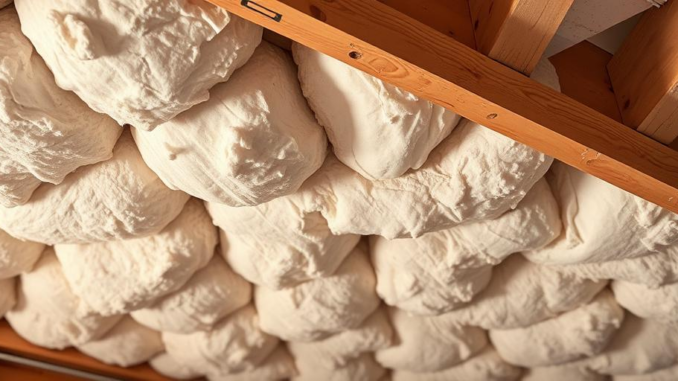
Summary
Thirty-nine businesses involved in insulation installations under government schemes have been suspended due to poor-quality workmanship. The government has initiated a comprehensive review and repair process, with installers responsible for covering the costs. These actions are part of a broader effort to enhance building regulations and protect consumers.
Focus360 Energy: property compliance services – pre-planning to post-construction. Learn more.
Main Story
So, I heard the UK government recently put the brakes on 39 businesses involved in home insulation. Yep, suspended right from the Energy Company Obligation 4 (ECO4) and the Great British Insulation Scheme (GBIS). You know, those programs meant to help folks, especially those with lower incomes or homes that aren’t exactly energy-efficient, improve their insulation. Makes sense, right?
But here’s the kicker: TrustMark, that independent quality watchdog, found some pretty serious issues. And these weren’t just minor hiccups either. We’re talking about problems with solid wall insulation going back to 2022! Think incomplete paperwork, inadequate ventilation, and – get this – exposed or even missing insulation. Can you imagine? That’s just asking for dampness and mold, which, of course, is a nightmare for people’s health. I actually saw this firsthand at my grandmothers house. They had terrible insulation and there was mold everywhere.
Good on the government though, they didn’t hesitate. They suspended those installers and launched a full-scale review of all the work done under these schemes. Ofgem, the energy regulator, is now in charge of making sure those dodgy installations get fixed. And, crucially, the installers are footing the bill for all the repairs. Homeowners won’t have to pay a penny, thank goodness. And if the installers don’t comply? They’re banned from any future government-backed insulation schemes. It’s only fair, isn’t it?
This whole thing really shines a light on a critical problem when we’re trying to boost home energy efficiency. While these schemes are great for helping homeowners save energy and cut down on bills, if the work isn’t up to scratch, what’s the point? Poorly installed insulation doesn’t just waste energy; it can be a real health hazard. Damp and mold can make respiratory problems worse, among other things.
The government’s admitted that these aren’t just isolated incidents. They’re blaming flaws in how the ECO4 and GBIS programs were set up. It’s worth noting that other energy efficiency schemes, like those run by local authorities, seem to have better checks and balances in place, which is why they haven’t had these kinds of problems. That said, how can we not know about these deficiencies before hand? Are there no people in charge of QA?
This whole mess underlines the need for much tighter oversight of government-funded energy efficiency programs. The government acted decisively by suspending the installers and making them fix the problems, which shows they’re serious about protecting consumers and using public money wisely. But going forward, we need stronger quality control measures and more robust monitoring to prevent this sort of thing from happening again and to keep public trust in these important programs. I’m not sure if this is enough though. Do we have sufficient penalties for this kind of activity?
And you have to remember, this all ties into broader changes happening in UK building regulations. In recent years, there’s been a growing emphasis on building safety and energy efficiency. The Grenfell Tower tragedy, for example, really highlighted the need for safer building practices, and of course, the climate crisis is pushing us to be more energy-efficient. The Building Safety Act 2022, which brought in big changes to building control, is a perfect example of this shift.
The government’s response to the bad insulation work fits into this overall push for higher standards in construction. By insisting on proper installation, thorough checks, and accountability for poor workmanship, they’re basically reinforcing the move toward better quality and safety in building. It’s a reminder that robust oversight and enforcement are crucial if we want to achieve these goals. No matter how shiny the marketing is, we need to ensure that the results are what we want. Ultimately, this shows a systemic problem that needs to be solved.


Dodgy insulation giving your grandma a moldy house? Sounds like a horror movie plot! Glad the government stepped in, although maybe they should hire your grandma as a quality control inspector. She’s clearly got a nose for these things!
Haha, a horror movie plot is right! Grandma *definitely* has a nose for these things now. It really highlights how crucial proper inspections are. Maybe experienced homeowners could play a role in quality assurance for these schemes. Their lived experiences would be invaluable!
Editor: FocusNews.Uk
Thank you to our Sponsor Focus 360 Energy
Missing insulation? Sounds like the installers were playing hide-and-seek with the energy savings! Maybe they thought homeowners would enjoy a refreshing breeze in winter. Seriously though, glad they’re being held accountable!
Haha, “hide-and-seek with energy savings” is the perfect way to describe it! It’s good to see action being taken. Hopefully, this serves as a strong warning to others. What more can be done to make sure this can be avoided in the future? There needs to be better solutions in place.
Editor: FocusNews.Uk
Thank you to our Sponsor Focus 360 Energy
Missing insulation is bad, but at least those 39 businesses gave homeowners a chance to “think outside the box” – or, in this case, outside the insulated walls! Seriously though, hopefully, this review is thorough and they find all the gaps, literally and figuratively!
That’s a great point about ‘thinking outside the insulated walls’! Hopefully, this situation will force a broader discussion on innovative approaches to quality control within these schemes. It’s not just about fixing the current gaps, but preventing them in the future.
Editor: FocusNews.Uk
Thank you to our Sponsor Focus 360 Energy